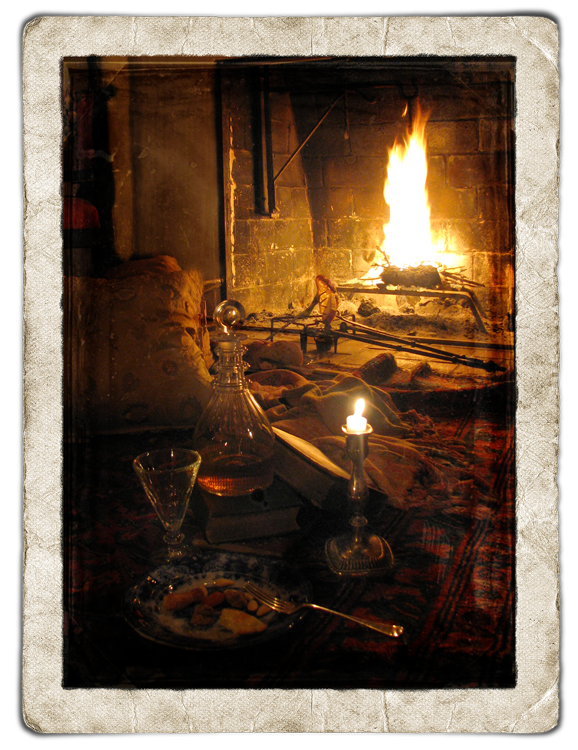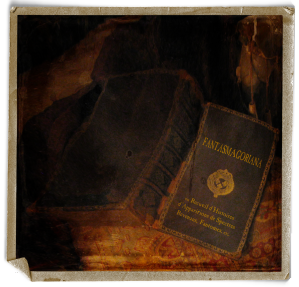There is a well recognized adage – never deny an Englishman his Cheese Toast. Ever. It seems that Lord Byron was no exception to this rule. Somewhere in the massive quantity of luggage that he had hauled with him to Lake Geneva, he managed to find a small space to wedge this beautiful toasting fork that now lay in front of the fire. I wasn’t surprised. Lord Byron was an unapologetic over-packer. Overloaded with a vast quantity of must-have paraphernalia, his carriage chronically broke down as it made its way across Europe on the way to Lake Geneva. Apparently, you can take Lord Byron out of England, but couldn’t take England out of Byron – he needed his Cheese Toast.
And now this long-handled fork rested upon a trivet in front of the low flames and was quietly toasting a small, skewered piece of bread a delectable golden brown. It seemed a cozy choice for the poets to eat while listening to ghost stories.
A wedge of cheese (Raclette, I believe) sat nearby, softening to an optimal consistency. The melted side of the cheese closest to the fire would be scraped off and spread over the toast. Perfection in its simplicity. A decanter of Sack, or Sherry, rested close at hand as an excellent partner for the cheese. Alas, this charming treat had been completely forgotten when the group made their way upstairs to their beds.
It was hard to pass up such a delicious morsel, but I was curious to see what was in the room next door. I turned my back to the fire and made my way to the hall.



